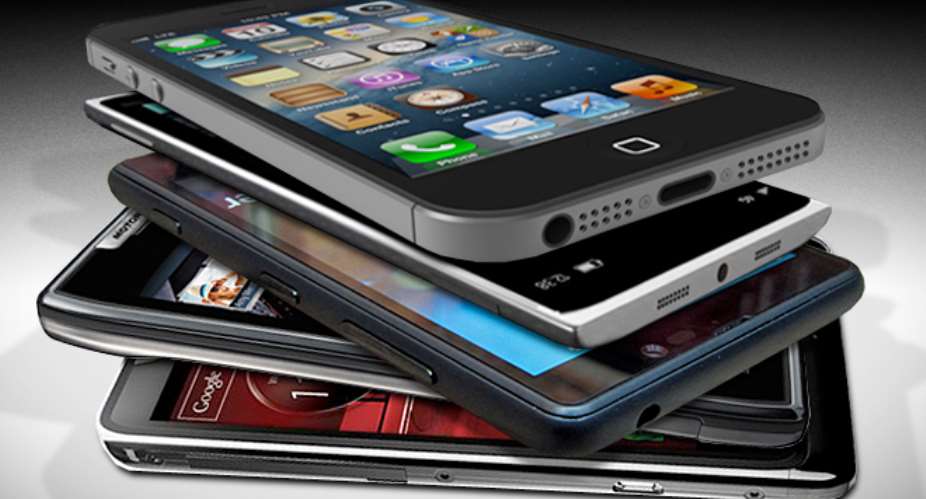In recent years Apple, Google, and Microsoft have invested heavily in speech-recognition technology, encouraging people to issue voice commands to their smartphones and games consoles. A new device called the Ubi that launched Wednesday aims to extend that idea to your entire home. You can call out commands to do things like turn up the thermostat or draw the blinds.
The Ubi is meant as an easy way to control many different connected home devices. In recent years, many home appliances and devices that can be controlled over the Internet have appeared. Among them are thermostats, door locks, and lightbulbs. But most must be managed using their own dedicated mobile app or Web service.
The Ubi is about the size of a smoke detector, costs $299, and is made by a two-year-old Toronto startup called Unified Computer Intelligence Corporation (UCIC). The company has raised almost $1 million—$230,000 of it through Kickstarter—and has already shipped more than 2,500 early versions of its device.
When switched on and connected to a Wi-Fi network, the Ubi constantly listens for someone to say the phrase 'OK, Ubi.' Once roused, the device tries to understand commands using Google's speech-to-text software. Questions such as 'What is the capital of New Zealand?' are answered using Google's Web search.
The device can also be used to control other home devices, such as a Nest thermostat or automated blinds, so that it can respond to commands like 'turn up the heat' or 'open the bedroom blinds.'
The Ubi can also be asked to play music or create calendar appointments. The device has temperature, humidity, and light sensors that can be used to set automated alerts. For example, the device can be configured to send a text message when someone turns on the lights while you're at work.
Ubi will face competition from Apple's voice activated assistant, Siri. An extension of the company's iOS mobile operating system aimed at developers of connected home gadgets will let them take voice commands from Apple devices . If a company that makes connected lightbulbs made use of that, for example, a user might pull out his phone and say, 'Siri, turn on the lights in the living room.'
Like all products that rely on speech recognition, the less-than-perfect accuracy of the technology means that the Ubi won't always work flawlessly. Mobile devices can generally get a fairly clear recording of a person's voice because they are held close to the mouth. But Ubi must understand things called out from across the room, perhaps with background noise such as a TV or baby crying mixed in. 'That ends up really messing around with speech recognition,' says Leor Grebler, CEO of UCIC.
Recognizing the meaning of a command poses a further challenge. Right now, you must be very close to the phrase Ubi expects. Grebler says that he wants his device to eventually be able to understand nuances of expression, for example that 'Do I need an umbrella?' could mean either you're checking the weather or wondering if you need to replace one. 'That's a challenge ahead of us,' Grebler says.
Source: www.technologyreview.com





 Akufo-Addo spotted ordering chiefs to stand for his handshake
Akufo-Addo spotted ordering chiefs to stand for his handshake
 Akufo-Addo ‘disrespects’ every chief in Ghana except Okyenhene — NDC Communicato...
Akufo-Addo ‘disrespects’ every chief in Ghana except Okyenhene — NDC Communicato...
 Supreme Court clears way for dual citizens to hold key public positions
Supreme Court clears way for dual citizens to hold key public positions
 Be transparent, don’t suppress the truth – Prof. Opoku-Agyemang to Jean Mensa
Be transparent, don’t suppress the truth – Prof. Opoku-Agyemang to Jean Mensa
 ‘I won’t tell the world I was only a driver’s mate during challenges’ – Prof Jan...
‘I won’t tell the world I was only a driver’s mate during challenges’ – Prof Jan...
 We’ll prosecute corrupt officials of Akufo-Addo’s govt – Prof Jane Naana
We’ll prosecute corrupt officials of Akufo-Addo’s govt – Prof Jane Naana
 [Full text] Acceptance speech by Prof Jane Naana Opoku-Agyemang as 2024 NDC Runn...
[Full text] Acceptance speech by Prof Jane Naana Opoku-Agyemang as 2024 NDC Runn...
 Election 2024: Don’t be complacent, we haven’t won yet – Asiedu Nketia cautions ...
Election 2024: Don’t be complacent, we haven’t won yet – Asiedu Nketia cautions ...
 Election 2024: Stop fighting over positions in Mahama’s next govt – Asiedu Nketi...
Election 2024: Stop fighting over positions in Mahama’s next govt – Asiedu Nketi...
 Prof Jane Naana Opoku-Agyemang will restore dignity of vice presidency – Fifi Kw...
Prof Jane Naana Opoku-Agyemang will restore dignity of vice presidency – Fifi Kw...
